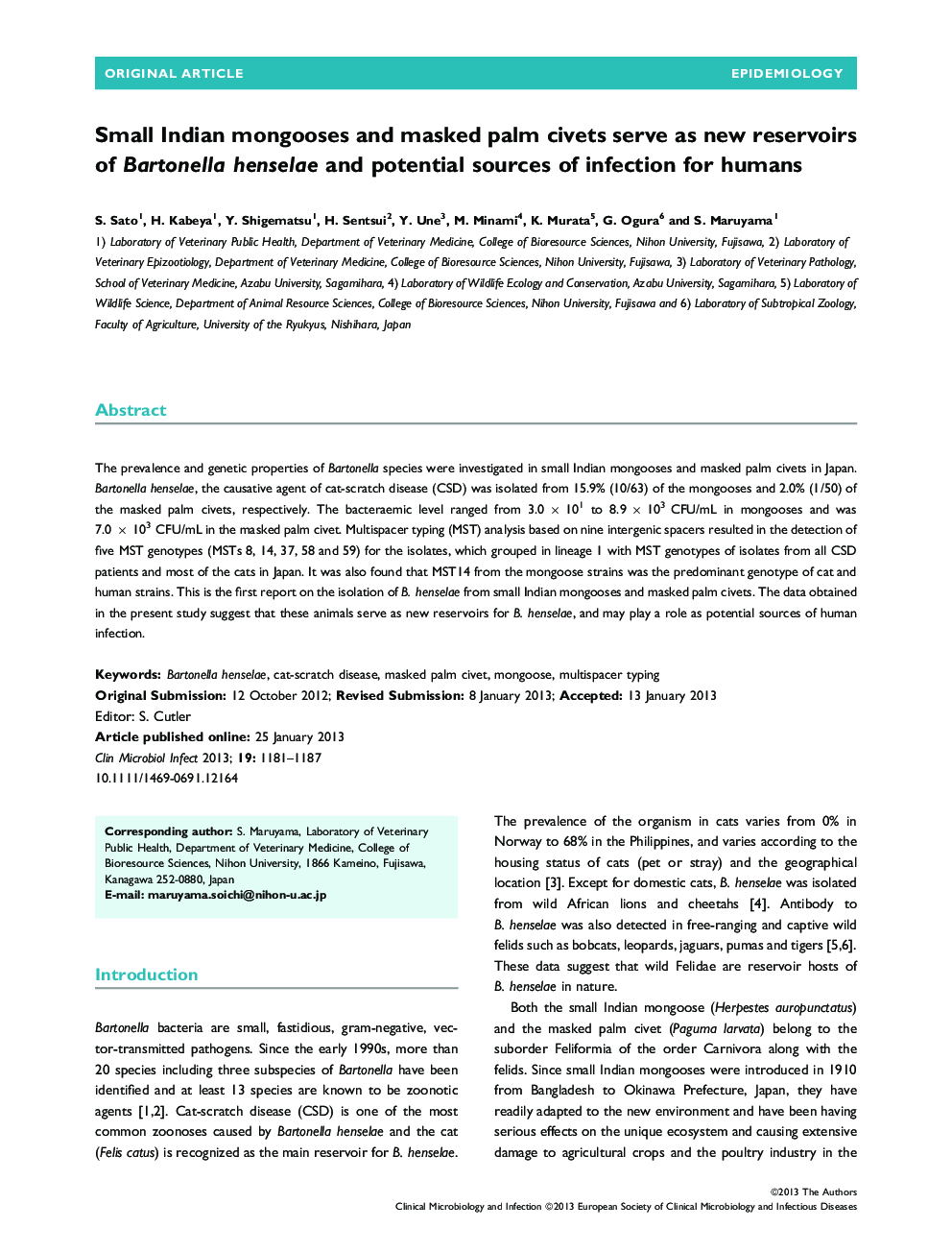| Article ID | Journal | Published Year | Pages | File Type |
|---|---|---|---|---|
| 6130507 | Clinical Microbiology and Infection | 2013 | 7 Pages |
Abstract
The prevalence and genetic properties of Bartonella species were investigated in small Indian mongooses and masked palm civets in Japan. Bartonella henselae, the causative agent of cat-scratch disease (CSD) was isolated from 15.9% (10/63) of the mongooses and 2.0% (1/50) of the masked palm civets, respectively. The bacteraemic level ranged from 3.0 Ã 101 to 8.9 Ã 103 CFU/mL in mongooses and was 7.0 Ã 103 CFU/mL in the masked palm civet. Multispacer typing (MST) analysis based on nine intergenic spacers resulted in the detection of five MST genotypes (MSTs 8, 14, 37, 58 and 59) for the isolates, which grouped in lineage 1 with MST genotypes of isolates from all CSD patients and most of the cats in Japan. It was also found that MST14 from the mongoose strains was the predominant genotype of cat and human strains. This is the first report on the isolation of B. henselae from small Indian mongooses and masked palm civets. The data obtained in the present study suggest that these animals serve as new reservoirs for B. henselae, and may play a role as potential sources of human infection.
Related Topics
Life Sciences
Immunology and Microbiology
Microbiology
Authors
S. Sato, H. Kabeya, Y. Shigematsu, H. Sentsui, Y. Une, M. Minami, K. Murata, G. Ogura, S. Maruyama,
